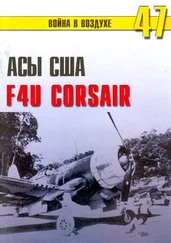Aboard the galley the captain was following the Prophet’s advice. Like all his crew Turgut went barefoot and wore simple working clothes, a cotton gown or long shirt over a pair of drawers. Hector was grateful for the loose fit of the baggy garments because he was still conscious of his circumcision. His penis had healed during the two weeks’ convalescence allowed after circumcision, but it was still inclined to occasional discomfort in the heat.
A sailor clambered up the companionway that led from the oar deck, and as he came level with Hector, there was something familiar about his face. A moment later Hector placed him. It was the English sailor Dunton with whom he had shared the hold on Hakim Reis’s vessel. ‘I had not expected to see you again,’ he said.
Dunton checked in his stride and for an instant did not recognise the young Irishman. ‘It’s the lad from Ireland, isn’t it,’ he then exclaimed. ‘You’ve changed. You look older and more grown up.’ He glanced down at Hector’s bare leg. ‘Also it seems you’ve taken the turban.’
Belatedly Hector noted that Dunton was still wearing a slave ring on his ankle though he had discarded the red slave cap and, like everyone else, wore a nondescript cloth wrapped around his head. ‘Yes, I converted,’ Hector said simply.
‘Can’t say I blame you,’ observed Dunton, not the least surprised. ‘But how come you are on the aft deck with the officers? You’ve not become a garzon have you?’
‘No, I’m the captain’s scrivano,’ said Hector. A garzon was lingua franca for the young men who sometimes shipped aboard as companions and bedmates for the officers and senior odjaks. ‘I also help the captain in his chart-making.’
Dunton looked impressed. ‘Always took you for a clever one,’ he said. ‘What’s that you’ve got hanging round your neck?’
‘It’s my qibla finder,’ said Hector. ‘It shows me the direction in which to pray.’
‘Mind if I have a look,’ observed Dunton. He had opened the little case and saw the compass needle. ‘Handy enough aboard a ship which turns every which way.’
‘What about you? What have you been doing these past nine months?’
Dunton shrugged. ‘Much the same as what I would have been doing at home if I had been stuck on shore for the entire winter,’ he answered. ‘I was put to work in the Arsenal, doing shipwright’s work. I helped get this old tub back afloat. She’s a right old-timer. Half her joints are shaky and she’s long past her best days. Wouldn’t wonder if this turns out to be her last voyage.’
He spat expertly over the side.
‘I’m not sure I’d have joined her crew if I had been given the choice. But my master is the same captain, as you call him, and he was very keen to have me aboard because there’s a shortage of good seamen. Plenty of volunteers to pull on an oar, but not many who know how to get the best out of a ship under sail. In all but name I’m the caravana, the foreman in charge of sail handling. Officially the caravana is a Turk, but he knows sod all about the job, and leaves it to me to organise the tasks. If this cruise goes well, I might even come back with a bit of cash to buy my freedom and then settle down in Algiers. I like the climate and the pay is very good if you’ve got shipwright’s skills.
‘But I thought that all the English prisoners had been ransomed last autumn and gone home?’
‘Seems I was left off the list,’ said Dunton. ‘And we won’t see another delegation from London for several years. I hear that the English consul died of the plague, and he’s not been replaced as yet. So, my best hope is prize money from this corso. Then there’ll be nothing to stop me from bringing my wife and children out to join me.’
‘You mean you’ll share in the plunder?’
‘That’s usanza. Even the humblest galley oarsman gets a cut of the prize money, and it doesn’t matter if he is a slave. It’s just a single share, and in theory he’s meant to hand it over to his master. But if your master likes you, you get to keep it. By all accounts the captain is a decent old stick, and would let you hang on to what you earn if you serve him well.’
Dunton glanced up at the banner which was still hanging slack. ‘I’d better get going. This mist won’t last all day. I need to tighten those wooldings on the main spar while I have the chance. It’s nice to get the chance to talk English for a change too.’
‘So you haven’t met my friend Dan? He speaks English.’
‘No, who’s he?’
Hector pointed to the foredeck where Dan was talking to one of the odjaks. ‘That man there.’
‘The foreign-looking one with dark skin? I took him to be an usif, a blackamoor slave. How come he’s so friendly with the odjaks?’
‘He’s a musketeer,’ Hector told him. ‘He made quite an impression on them.’

IT HAD HAPPENED on the afternoon before Izzet Darya set sail from Algiers. The captain had told Hector that he would take him aboard as his scrivano, but he had made it clear that there was no place for Dan aboard the galley. Naturally Hector asked the captain to change his mind, only to be reminded that an illiterate artist would just be an extra mouth to feed. So Hector had resigned himself to being parted from his friend when Dan arrived at the dockside on an errand for Turgut’s steward. He had been told to bring Turgut’s prayer mat and some extra clothes out to the anchored galley, and by chance had hitched a ride with a boatload of odjaks coming aboard with their bedrolls and weapons. As the odjaks climbed on to the galley, one of the janissaries had handed his musket to Dan to hold. Dan had taken the weapon and, glancing at the firing mechanism, commented that it was out of alignment. ‘Are you armuriero, a gunsmith?’ the janissary had asked. ‘No, but I am a marksman, and this is a fine weapon,’ Dan had answered. Flattered, the janissary had asked Dan if he would like to try out the musket for himself, and the two of them had gone to the galley’s bow where Dan had loaded the musket and, under the watchful eye of the odjak, took aim at a mark, a dead cat floating in the water. He sank the carcass with his shot. The janissary had been so impressed that he had called on his fellow soldiers to watch another demonstration of Dan’s marksmanship, and when he again hit his target – a clump of floating weed – they had applauded. By now the aga of the janissaries had strolled over to observe what was going on, and when Dan missed his third shot by only a narrow margin, the aga had enquired where he had learned to shoot so accurately. ‘Among my people,’ Dan had replied proudly. ‘That’s why we are called the Miskito. Outsiders believe that our name is taken from the flying insects which infest our coast, but that is wrong. The Spanish call us Miskito because we are the only native people in those lands who have learned how to use guns against them. So they call us the musket people.’ ‘If you are prepared to fight the infidel, then you should assist us,’ was the aga’s comment, ‘we always need good marksmen, and those who can help repair our guns.’ The aga’s authority in matters of warfare was equal to the powers exercised by the captain himself, so Dan had found himself co-opted as an auxiliary with the odjaks, and – to Hector’s delight – the Miskito had joined the corso.

NIMBLY Dunton swung himself up on the mainspar, straddled it, and began attending to a frayed rope binding when, abruptly, he raised his head and looked out into the mist. ‘Hello!’ he said softly, ‘Something’s coming our way.’ Other crewmembers had heard the noise too, and there were calls for the pumping crew to cease work for a moment. In the silence that followed, a rhythmic heavy splash and groan could be heard. Quite where the noise came from was difficult to tell, but it was approaching. On the foredeck, the janissaries who had been smoking and talking put down their long pipes and took up their muskets, and quietly prepared the primings. Turgut, alerted by the sudden tension aboard, walked to the starboard rail and cocked his head to one side listening. ‘Galleot or maybe brigantine under oars,’ he said.
Читать дальше









